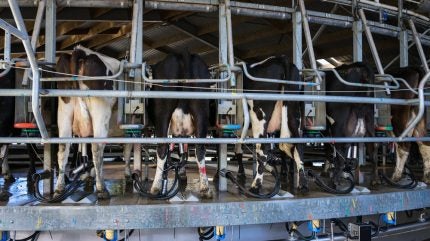
New Zealand dairy and infant-formula business Synlait Milk has agreed to sell its North Island assets to the local unit of US-based Abbott Laboratories.
As Synlait announced today (29 September) it had returned to EBITDA profitability and trimmed net losses to NZ$40m (-$23.1m) in fiscal 2025, the company revealed the deal for the equivalent of US$178m with Abbott.

Discover B2B Marketing That Performs
Combine business intelligence and editorial excellence to reach engaged professionals across 36 leading media platforms.
The North Island assets, which were part of a strategic review last year, essentially consist of Synlait’s Pokeno factory, a blending and canning facility on Richard Pearse Drive, and a warehouse on Jerry Green Street.
In a separate notice today, New Zealand and Australia-listed Synlait confirmed its largest shareholder – Bright Dairy in China with 65.25% – will vote its approval on the sale proposal at a meeting of investors on 21 November.
The meeting has been called because the sale assets comprise a significant proportion – more than half – of Synlait’s average market capitalisation.
That was NZ$429.7m as of the market close on Friday, while the gross value of the North Island assets is around NZ$273m, according to a statement.
The transaction is otherwise expected to close on 1 April but Abbott will also require consent under the Overseas Investment Act.

US Tariffs are shifting - will you react or anticipate?
Don’t let policy changes catch you off guard. Stay proactive with real-time data and expert analysis.
By GlobalDataJust Food has asked Abbott for confirmation and comment from its side of the asset transaction.
Synlait said it has opted to sell the assets because they are “underutilised” and are therefore incurring financial losses for the group business.
“Retention of the assets while attempting to improve utilisation, and carrying the associated execution risk, is not prudent in the face of a compelling offer from a credible buyer,” Synlait explained.
The Pokeno facility is “capable of producing a full suite of nutritional, formulated powders (including infant-grade skim milk, whole milk and infant-formula base powders),” the company said, adding the plant was “designed with capacity to produce 45,000 metric tonnes of spray dried product”.
Abbott has been a Synlait customer since 2020 under a manufacturing agreement. The partnership will continue post the North Island transaction for a “range of transitional services” for up to three years and a possible extension thereafter.
Details of those arrangements were not disclosed.
Synlait added that following the 2020 agreement with Abbott, the Pokeno factory underwent “customisation to enable the capability to process dairy and non-dairy nutritional products”.
Proceeds from the asset sale would reduce Synlait’s debt, which was cut in fiscal 2025 from NZ$551.6m to $250.7m.
Under the anchor of CEO Richard Wyeth, who joined the business in May, Synlait has built on its first-half performance after what had been challenging times for the company marked by a series of profit warnings.
“Our new CEO Richard Wyeth has a clear plan to ensure Synlait’s people are focused on the right areas to deliver an uplift in performance during FY-26,” chairman George Adams said in the results presentation today, adding that “12 months ago, Synlait was fighting for survival”.
Last year, the company had to turn to Bright Dairy and its second-largest shareholder The A2 Milk Co. for financial support amid a lack of funding to keep the company operational, replete with threats from its farmer milk network to withdraw supplies.
Synlait also needed a NZ$130m bailout loan from Bright Dairy last year. In the meantime, a settlement with A2 Milk over a long-running contractual and pricing dispute was also reached.
A net loss after tax of NZ$40m was reported today for the 2025 financial year, compared to a NZ$182m loss in the corresponding period.
EBITDA turned to a NZ$51m profit from a NZ$4m loss. EBIT was still in the red at NZ$6m but was down from a NZ$183m loss.
Revenue climbed 11.5% to NZ$1.83bn.


